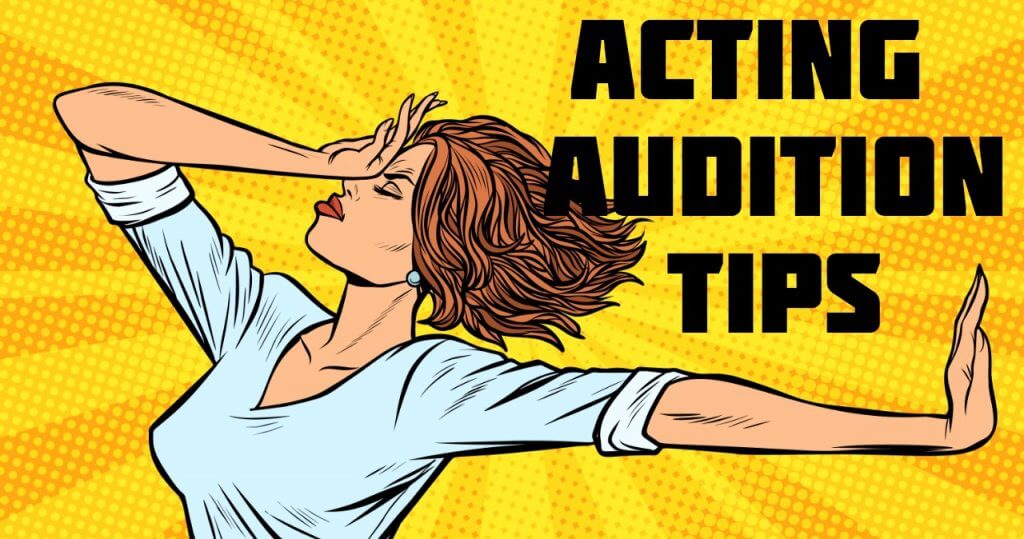
Auditions provide wonderful opportunities for you to connect with casting directors, producers, directors and to forge long-lasting business relationships.
Your audition starts as soon as you enter the casting studio. There are many things that you can do so you make the very best first impression possible! Do you intend to be a casting director’s dream? Here is some audition advice for actors:
The easiest way to prepare for auditions is to enroll in an ongoing acting class and if you can’t enter an in-person acting class, there are many online tools. Beyond this, though, there are many things you can do before an audition.
Do your character homework first, before learning your lines. Whatever this process is for you, have fun with it. When you yourself have prepared, you will have fun in the room. If you’re the actor that feels free only if you are off-book, then do your best to get off book! Run lines with a pal, a member of your family, or a classmate.
Tips For Guidance, Through An Audition
1. Practice flexibility
I’d recommend practicing in different parts of your home. Practice by pretending that the camera is likely to be on one side of the room — and then another. Practice together with your friend standing in different parts of the room. Be flexible and get ready for multiple possibilities regarding room setup.
You may also practice with an audience of multiple friends, peers, or nearest and dearest — and even work on your audition in your acting class.
2. Relax
Since you are reading this, I know that you care a lot about your career! You’re dedicating your time and energy to pursue something that you love doing. Remember that you are here to have fun. This is the best audition advice that I will share with actors: have fun.
So, whenever you enter the casting office, regardless of how stressful the heavy traffic could have been, or how concerned perhaps you are that you will do precisely what you practiced at home, make sure you let go, and tell the story. Allow your creativity to flow!
And if you are late to the audition, don’t freak out. This just creates more stress. Instead, wait calmly in the waiting room until you are called, and perhaps explain briefly to the casting director that there was a road blockage, etc. only if you feel it’s necessary. Often, particularly for commercial auditions, the casting directors are so busy that they don’t realize if someone has arrived, say, ten minutes late.
3. Be on time
Do your best to be on time. Better yet — be early! Especially when you are being paired with another actor at a callback and/or is up for a network TV or feature film role (there are fewer time slots for these auditions, and so it really can impact the casting director’s schedule if you are 10+ minutes late). Allow time for the worst traffic ever. It is better to be early and safe.
4. Read the signs in the casting studio and then ask questions if necessary
When you walk into the casting office, you will discover a lot of instructional signs regarding where to sit, where to register, where to use the bathroom, and where to find sides. Read them carefully. Read them twice, perhaps three times. Then, and only then, when you have a question, approach anyone at the front desk with kindness. Again, a big piece of audition advice for actors: your audition starts as soon as you walk into any office (and sometimes, as soon as you park your car or truck, as you might be viewed from the window).
5. Be easy to find
Sometimes, wait times can be long; however, it’s important that you are easy to find when your name is called. So be sure to wait near the door of the room, within earshot of the casting director. This sounds simple, but often actors will wander out of the waiting room just before their turn.
Sometimes, wait times can be long; however, it’s important that you are easy to find as soon as they call your name. So make sure you wait near the entranceway of the area, within earshot of the casting director. This sounds simple, but often actors will wander out from the waiting room just before their turn.
6. Learn from every audition
When you are finished with your audition, pay attention to what went really well. Applaud yourself for this. Also, pay attention to something you could be able to boost the next time around. We’re artists who’re constantly growing and changing, and every audition is a learning opportunity.
And as always, remember to have fun!
7. Slate in character.
Your audition can be over before you read the initial word of the script. This may not be fair, but it’s just the way that it is.
Your slate is the very first thing we hear so if your slate voice differs from what we’re looking for, I immediately overcome my first impression of you and then test how you see the script “in character.” (Harsh truth: I don’t care about the “real” you, I need to know if you’re what I want/need for the commercial.)
When casting, you might have several hundred VO auditions to be controlled by in one evening. There’s usually no time to be controlled by every audition all the way through. You get a gut impression of somebody right away. If you prefer what you hear, you listen to more.
8. Study the casting spec and script.
For VO work, auditions are first reviewed by the copywriter that wrote the script. That writer also writes the casting spec, so it is your best window into his/her brain and what he or she is looking for.
There are typically clues in the script too.
What’s the tone of the spot? More naturalistic or extraordinary? Sales-y or slice-of-life? Is it a character piece or an “everyman” sort of thing? There are a million different flavors of “mom,” what’s the context because of this one. Is she the heroine of the spot or even a supporting player?
There are a million different flavors of “mom,” what is the context for this one. Is she the heroine of the spot or a supporting player?
Finally, if you want to take a “different spin” on it then the casting spec, my advice is to save that for a second or third take.
Review the spec. Study the script. Give yourself the best chance to deliver what we’re looking for.
9. Say the words right.
If you do not understand how to pronounce something, ask. Or look it up. Especially the product name. Get that wrong, and it’s unlikely your audition will ever make it in front of a client.
Names of cities and countries tend to be mispronounced. Street names or businesses or regions of town (especially for spots in a region where you do not live) often get mangled. Spend a few minutes looking them up if you’re unsure.
Beyond pronunciation, search for performance clues in the script itself.
If words are italicized or underlined or bolded or capitalized… the writer might want to inform you to put only a little mustard on ’em. Be smart.
And finally, read the spot as close to time as possible. If you take 31 seconds for a 30-second spot, it’s not the end of the world. But if you take 45 seconds? Then you’re not doing it at the pace, it will need to be done and you’re not going to book it.
10. Lay down two takes.
Honestly, 95 percent of auditions don’t allow it to be through the initial take, not as the second.
But if you ARE on the short-list and I love your voice, I may try to find some performance variations to simply help sell you to the client. If there’s a second take that is a slight variation (but not in a wildly different voice) I have something to play with.
If I’ve only got one take, I may not need the options I have to cut your voice together for the scratch track. (For example, you could have read something a split-second faster on the next take and that’s what I importance of timing purposes.)
There are many, many cases of “demo love” where an audition track gets put on a rough cut and that actor eventually books the job. Give me some options so that if I like you, I can cut the best audition performance together.
11. Record it well.
We hear a ton of people. Many are great, but only one books the job.
Once you “get past” the ad agency copywriter, then you go on a short-list that’s reviewed by a creative director who thins the field even further.
From there, a few selects are usually put against picture (in the case of TV, film, games, etc.) or perhaps cut together with some effects (in the case of radio.)
Ultimately, a few options (more than one, less than five) are shared with the client who makes the final selection. There are often multiple people on the client-side that have to review and approve your audition.
In other words, there are a bunch of different people who have to agree that you are “the one” before you’re offered a part.
Of course, there’s absolutely NOTHING you can do about all this, so there’s really no reason to worry about it. Do your audition and let it go. If you’re the right person for the job, the creative team will fight for you and work to make sure you’re the one hired.







